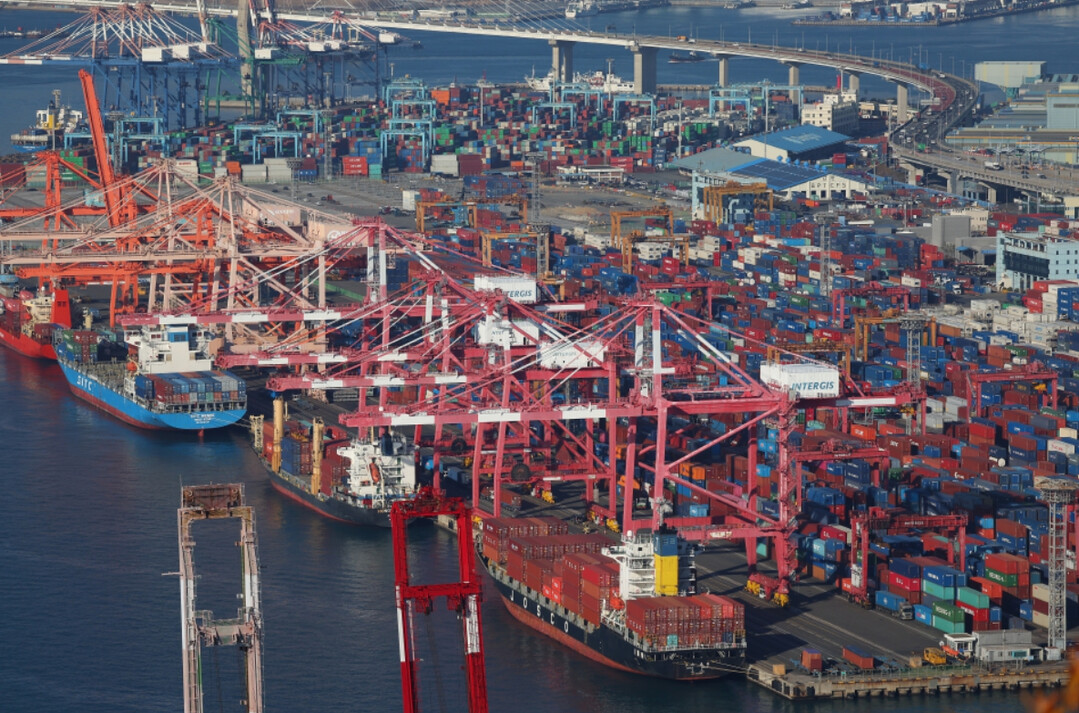
The domestic industry is on high alert as US President Donald Trump formalized the imposition of a 25% tariff on imported cars on the 26th (local time). This "tariff bomb" has landed even before the aftereffects of Hyundai Motor Group's announcement of its "historic" investment plan in the US have subsided, raising concerns that some companies may face a survival crisis.
Automobiles are the top export item to the United States. Last year, automobile exports to the US amounted to $34.744 billion (approximately 51 trillion KRW), accounting for nearly half (49.1%) of the total automobile exports ($70.789 billion). South Korea ranked third in automobile exports to the US last year, following Mexico and Japan.
With the 25% tariff and the potential for additional reciprocal tariffs by country, to be announced on April 2nd, the position of South Korean cars in the US market is inevitably weakened in terms of price competitiveness compared to locally produced vehicles.
Hyundai Motor Group held a groundbreaking ceremony for the 'Hyundai Motor Group Metaplant America (HMGMA)' in Georgia on the same day, outlining plans to increase local production volume in addition to the existing Hyundai Motor Alabama plant and Kia Georgia plant.
However, based on last year's figures, about 64% of the total vehicles sold in the US (1,708,293 units) were manufactured in domestic plants and Kia's Mexico plant and exported to the US, indicating a significant blow is expected.
Hyundai and Kia's exports to the US last year amounted to 1,015,005 units, with Hyundai selling 637,638 units and Kia selling 377,367 units in the US market.
Even if the goal of increasing local production to 1.2 million units annually by combining the three plants in the US and raising the local production ratio to 70% is achieved, the 500,000 to 700,000 units still produced overseas, including in South Korea, and imported to the US will remain subject to tariffs.
In a recent report, the IBK Economic Research Institute analyzed that "if the US imposes a 25% tariff on automobiles, South Korea's automobile exports to the US this year could decrease by 18.59% compared to last year."
For Korea GM and small auto parts manufacturers, finding appropriate countermeasures is proving difficult.
In particular, Korea GM, which serves as GM's overseas production base, has an absolute reliance on the US market, with 418,782 units, or 84.8% of its production volume last year (494,072 units), being exported to the US.
If competing brands from countries like Japan receive tariff exemptions or deferrals in the future, South Korea's price competitiveness could be further weakened. Accordingly, there are calls for the government and private sector to join forces and engage in negotiations with the US, emphasizing the strengthening of local investment and job creation effects.
At the groundbreaking ceremony that day, Hyundai Motor Group Chairman Chung Euisun stated, "Our announcement (of $21 billion in local investment) is by a single company, so I don't think it will have a significant impact on tariffs." He added, "Since negotiations after the tariff announcement will be led by the government, with individual companies also needing to participate, I think that's when it will begin," leaving room for future action.
[Copyright (c) Global Economic Times. All Rights Reserved.]



























